The Lenovo Legion Phone Pro is aimed at gamers, with a set of features designed to make it irresistible to adrenaline junkies wanting to conquer imaginary worlds, win virtual races, and in general have fun in the digital universe. It features the state-of-the-art Qualcomm Snapdragon 865+ 5G, designed for gamers, and with up to 16 GB of RAM and 512 GB of storage, it has as much oomph as a lot of laptops. Other gamer-friendly features include fast-charging dual batteries and a 6.65-inch, 2340 x 1080 AMOLED display that refreshes at up to 144 Hz.
As for the audio, Lenovo has installed dual front-facing speakers and a quad-microphone system with Qualcomm noise reduction technology. Lenovo says the four mics are a feature again aimed at gamers who might want to record themselves at e-sports events with a degree of audio sophistication.
Audio specifications include:
- Two front-firing speakers
- Qualcomm noise reduction technology
- No headphone jack
- Four microphones
About DXOMARK Audio tests: For scoring and analysis in our smartphone audio reviews, DXOMARK engineers perform a variety of objective tests and undertake more than 20 hours of perceptual evaluation under controlled lab conditions. This article highlights the most important results of our testing. Note that we evaluate both Playback and Recording using only the device’s built-in hardware and default apps. (For more details about our Playback protocol, click here; for more details about our Recording protocol, click here.)
Test summary
Scoring
Sub-scores and attributes included in the calculations of the global score.

Lenovo Legion Phone Pro


Our DXOMARK Audio testing protocol placed the Lenovo Legion Phone Pro in the lower ranks of smartphones for audio performance with an overall mark of 59, although its score in the gaming use case was somewhat more respectable. Among other gamer phones, for example, it had lower audio scores than the Asus ROG 3, which had a 75, and the Nubia Red Magic 5S, with a 64.
In Playback testing, the Lenovo Legion Phone Pro had a fairly good dynamics performance, especially in the games use case, where attack is precise and well-respected, and punch is powerful. The speakers, side-by-side and facing forward in landscape mode, are nearly impossible to occlude while gaming, another plus. The volume performance is solid. On the negative side, a lack of clarity hinders tonal balance. Muffled treble and prominent, inconsistent midrange impairs performance in the spatial attribute, especially in the cases of localizability and distance. At nominal volume, bass distortion is evident.
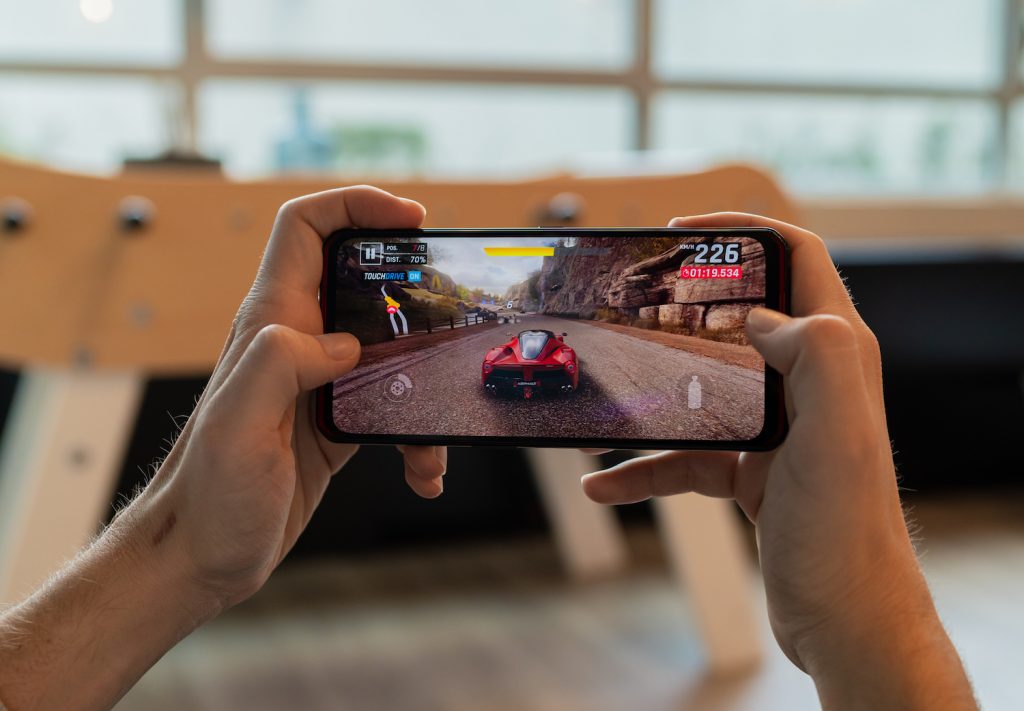
As a recording device, the Lenovo Legion Phone Pro had good volume performance in most of the use cases, and fairly good occlusion performance as well. In the memo and meeting use cases, the device performed well, producing stereo recordings that were almost free of artifacts. The score was pulled down by a variety of negative factors, however. Timbre performance was poor in most use cases. Artifacts emerge as a problem as soon as the volume is too high, and this was especially notable in the electronic concert use case, where the recorded audio was simply bad overall. The poor artifacts performance gets in the way of the spatial and dynamics performances when the device is used for video on both the front and rear cameras.
Sub-scores explained
The DXOMARK Audio overall score of 59 for the Lenovo Legion Phone Pro is derived from its Playback and Recording scores and their respective sub-scores. In this section, we’ll take a closer look at these audio quality sub-scores and explain what they mean for the user.
Playback

Timbre
Lenovo Legion Phone Pro
62
89
Timbre tests measure how well a phone reproduces sound across the audible tonal range and takes into account bass, midrange, treble, tonal balance, and volume dependency.
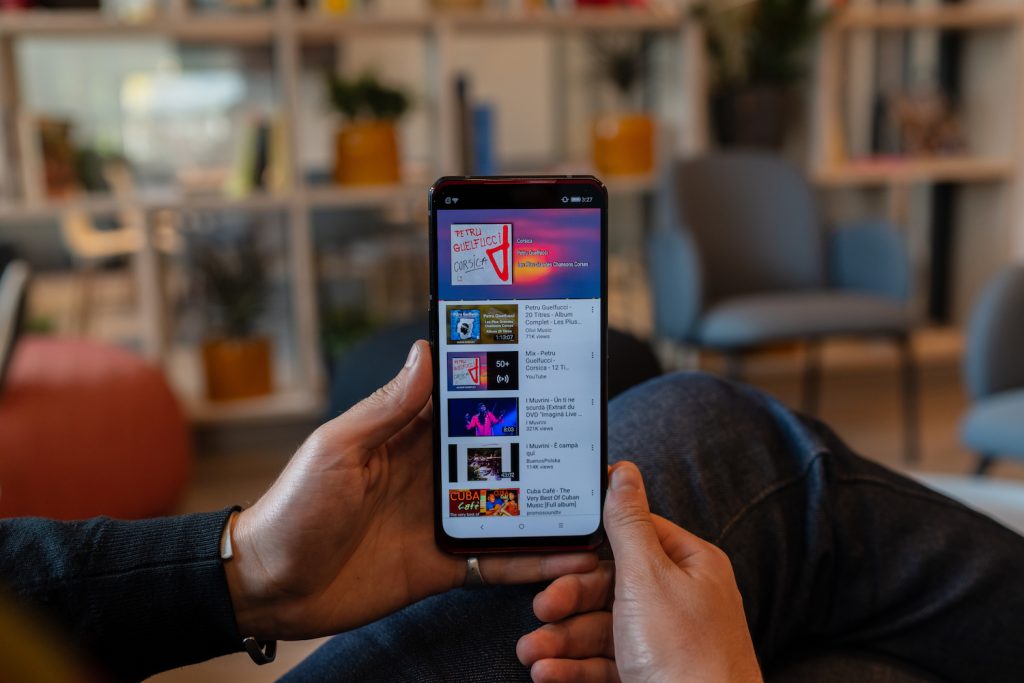
The Lenovo Legion Phone Pro provides an average performance for playback timbre. Treble is muffled on some items, and the midrange is inconsistent. The low-mids are too prominent in portrait mode and at maximum volume, and resonances on the low end impact bass performance.

Dynamics
Lenovo Legion Phone Pro
66
81
DXOMARK’s dynamics tests measure how well a device reproduces the energy level of a sound source, and how precisely it reproduces bass frequencies.
Its dynamics score of 66 places the Lenovo Legion Phone Pro in pretty good company — nine points from the best phone we have tested so far in this category, the Huawei Mate 20 X. The attack performance is good, especially in the games use case, where transients are well preserved. The punch performance is also solid when playing games.
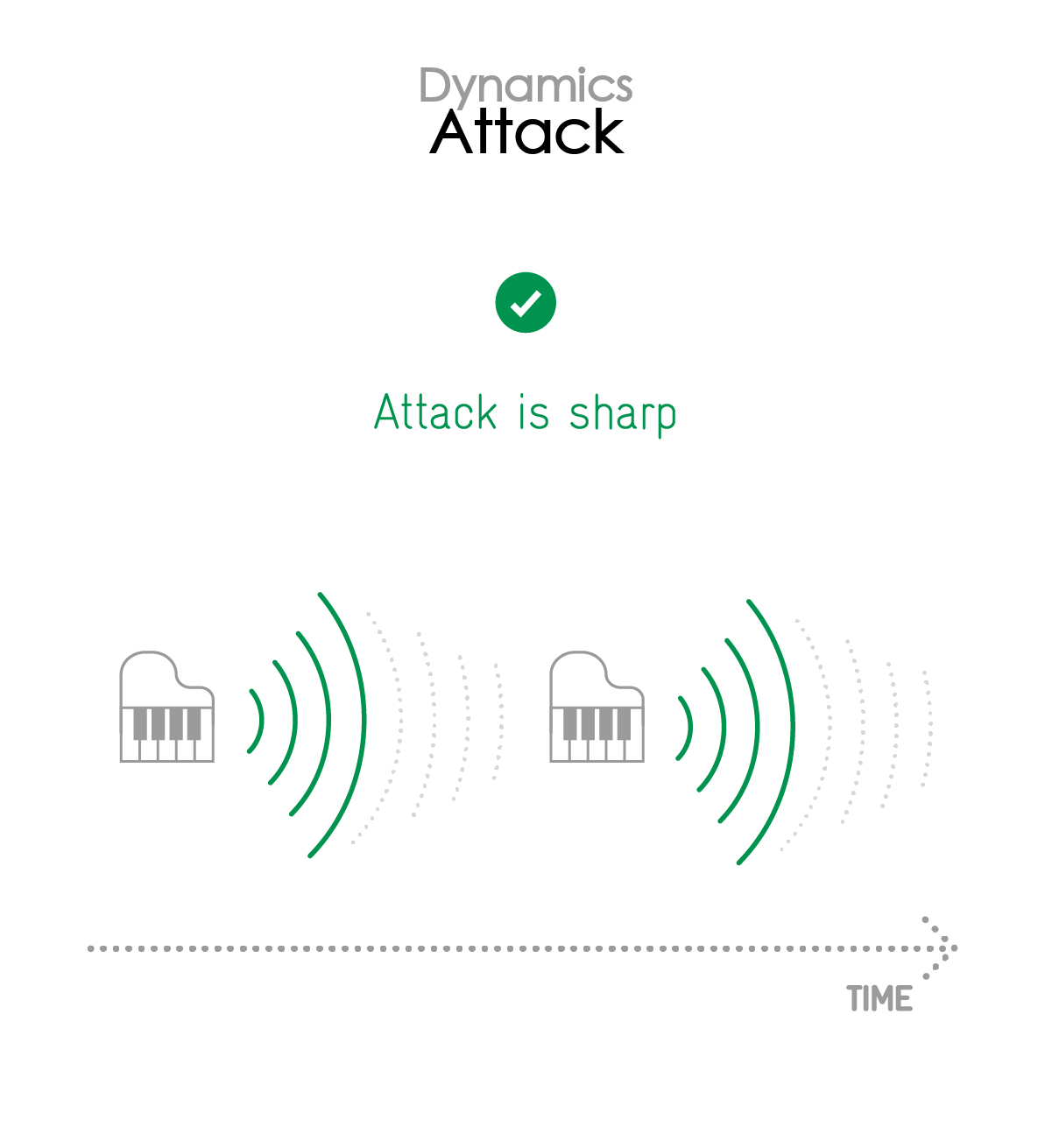
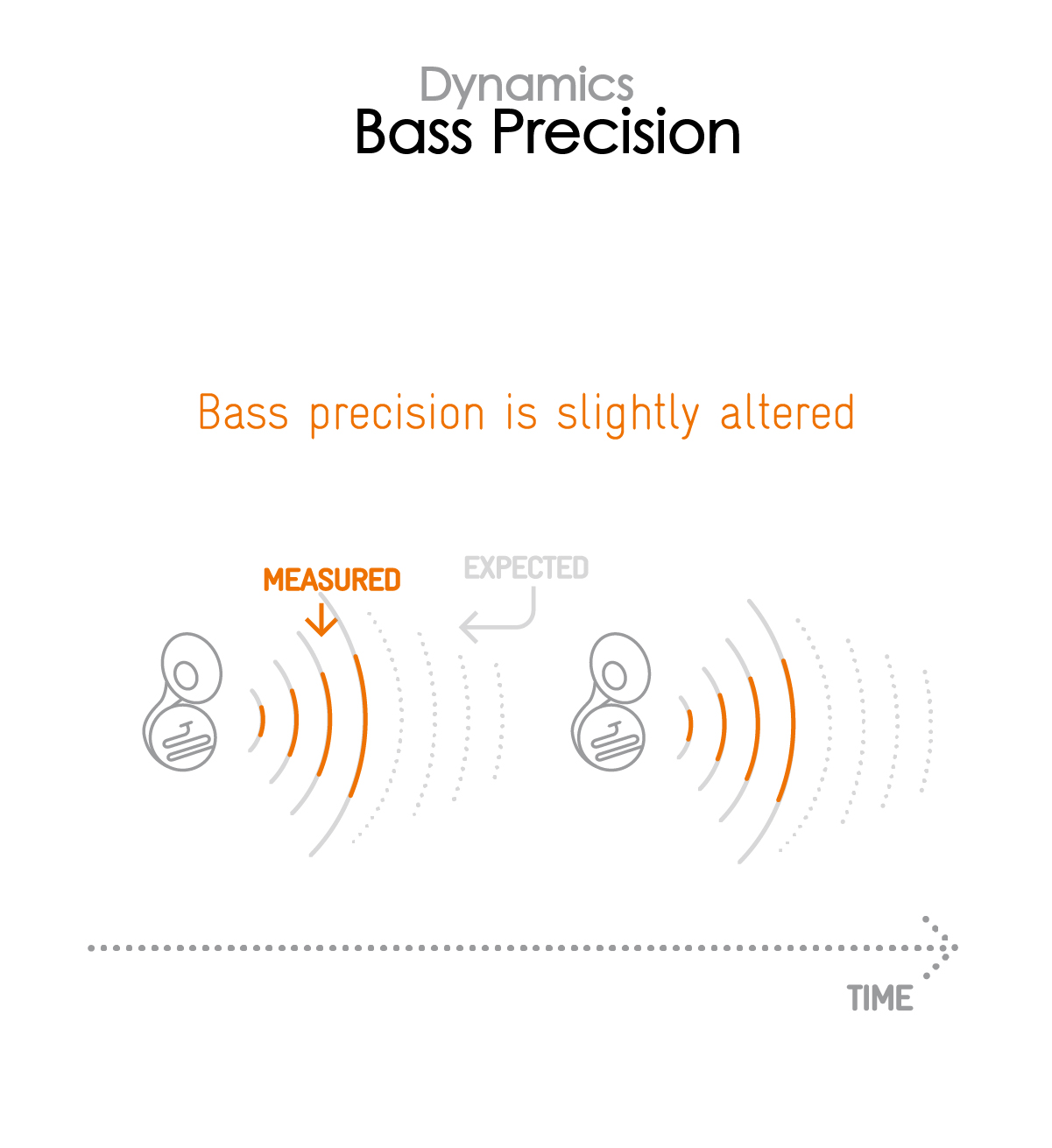
As for the drawbacks, the excess of low-mids impairs the attack, especially at soft and maximum volumes. Bass resonances hinder bass precision at both nominal and maximum volumes.

Spatial
Lenovo Legion Phone Pro
46
88
The sub-attributes for perceptual spatial tests include localizability, balance, distance, and wideness.
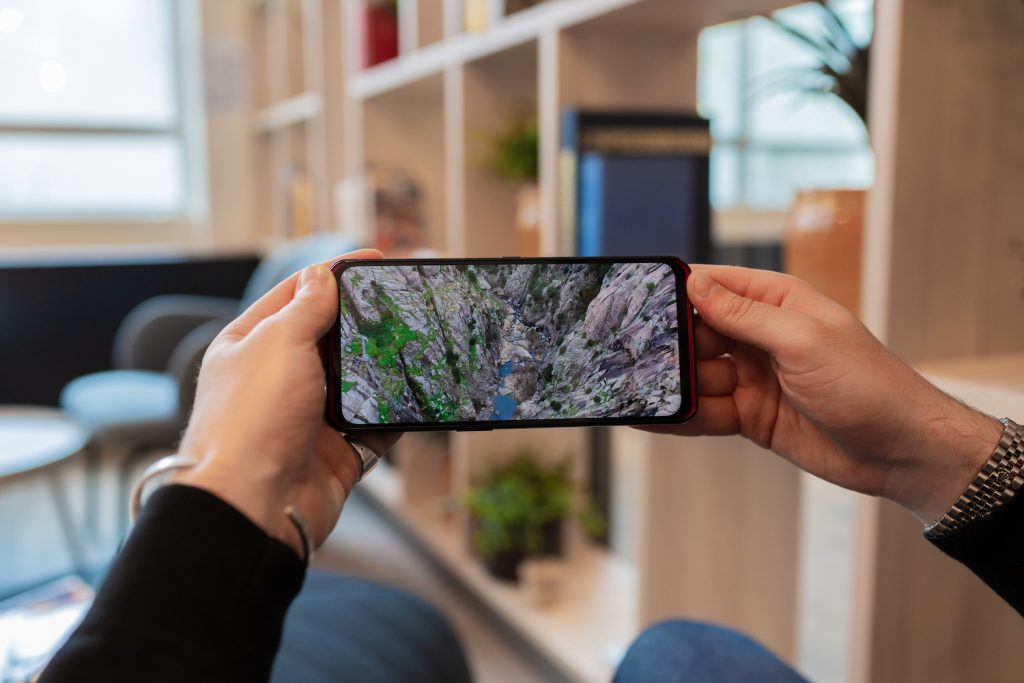
The Lenovo Legion Phone Pro’s disappointing score in the spatial attribute has a number of causes: The lack of clarity in timbre has an impact on localizability; centered elements are slightly unbalanced to the right; the wideness is not wide — in fact, it’s narrow, especially when playing movies. Further, the audio scene doesn’t rotate when the phone is in inverted landscape. Muffled tonal balance and low-mid dominance make voices sound further away than the screen position, impairing distance performance.
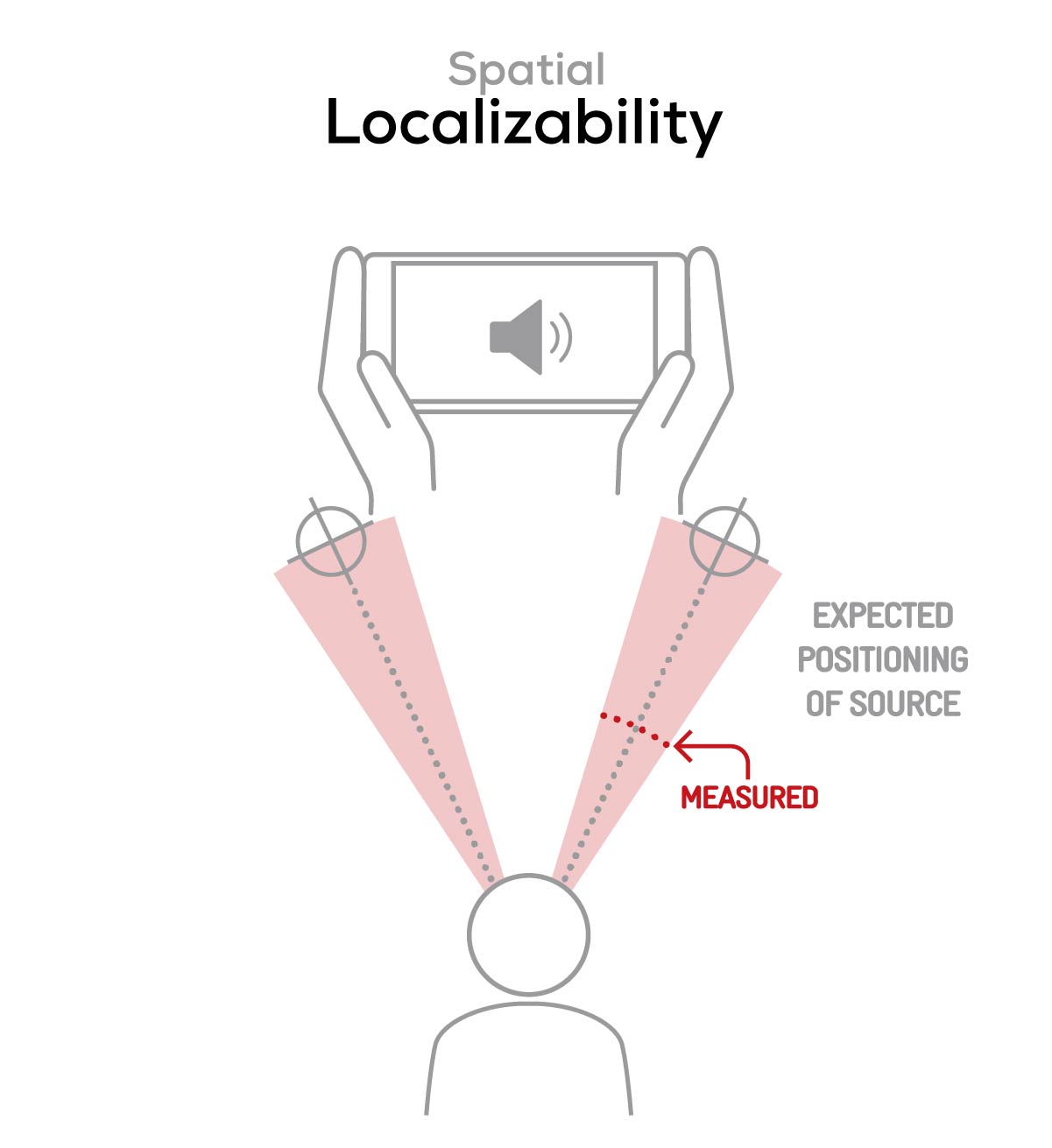
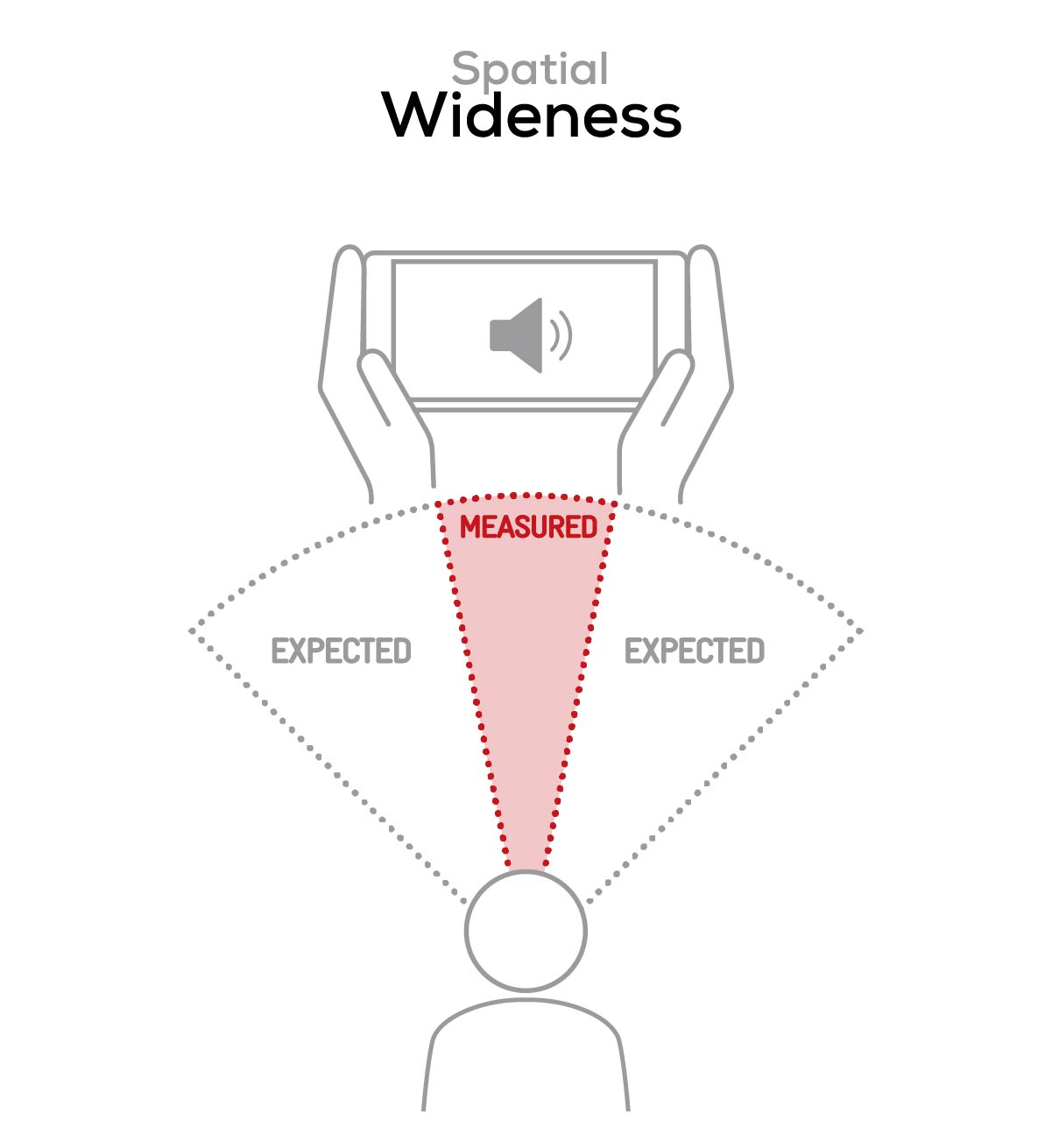

Volume
Lenovo Legion Phone Pro
72
91
Volume tests measure both the overall loudness a device is able to reproduce and how smoothly volume increases and decreases based on user input.
With a 72, the Lenovo Legion Phone Pro is in the upper range of volume performance among the devices we’ve tested, trailing the Realme X2 Pro by 7 points. The device has a smooth, consistent volume increase, and our engineers appreciated that dynamic content had good intelligibility at minimum volume. Maximum volume was loud enough.
| Hip-Hop | Classical |
| 72.2 dBA | 71.2 dBA |

Artifacts
Lenovo Legion Phone Pro
85
113
Artifacts tests measure how much source audio is distorted when played back through a device’s speakers. Distortion can occur both because of sound processing in the device and because of the quality of the speakers.
The Lenovo Legion Phone Pro impresses in the artifacts attribute, scoring just five points below the top score by the Black Shark 3 Pro and the Samsung Galaxy Note20 Ultra. The positioning of the speakers behind the screen makes them difficult to block with your fingers. But there was some bass distortion on certain content at nominal and maximum volumes, and our experts noticed clipping at maximum volume in several cases as well.
Recording

Timbre
Lenovo Legion Phone Pro
47
91
Recording was not a strong suit for the Lenovo Legion Phone Pro, and in terms of the timbre sub-category, it is a bottom-dweller along with the Black Shark 2 Pro, which so far has the lowest score of 43. The timbre of the device is focused in the midrange, with imprecise trebles and a lack of bass. In high SPL scenarios such as the electronic music concert use case, tonal balance is strongly thrown off by heavy distortions across the whole spectrum.

Prominent high-mids make recordings sound canny and tinny, especially in life video. In selfie video, trebles are more precise, improving performance.

Dynamics
Lenovo Legion Phone Pro
50
81
Here again in the dynamics attribute, our engineers found the Lenovo Legion Phone Pro wanting. Its score of 50 plants it squarely in the lower end of the spectrum. Strong spectral artifacts hinder the envelope performance, especially in our high SPL scenarios (electronic music concert, for example), where the audio scene is not at all well preserved. In particular, the bass and drum strikes lose dynamics in the process of being recorded.
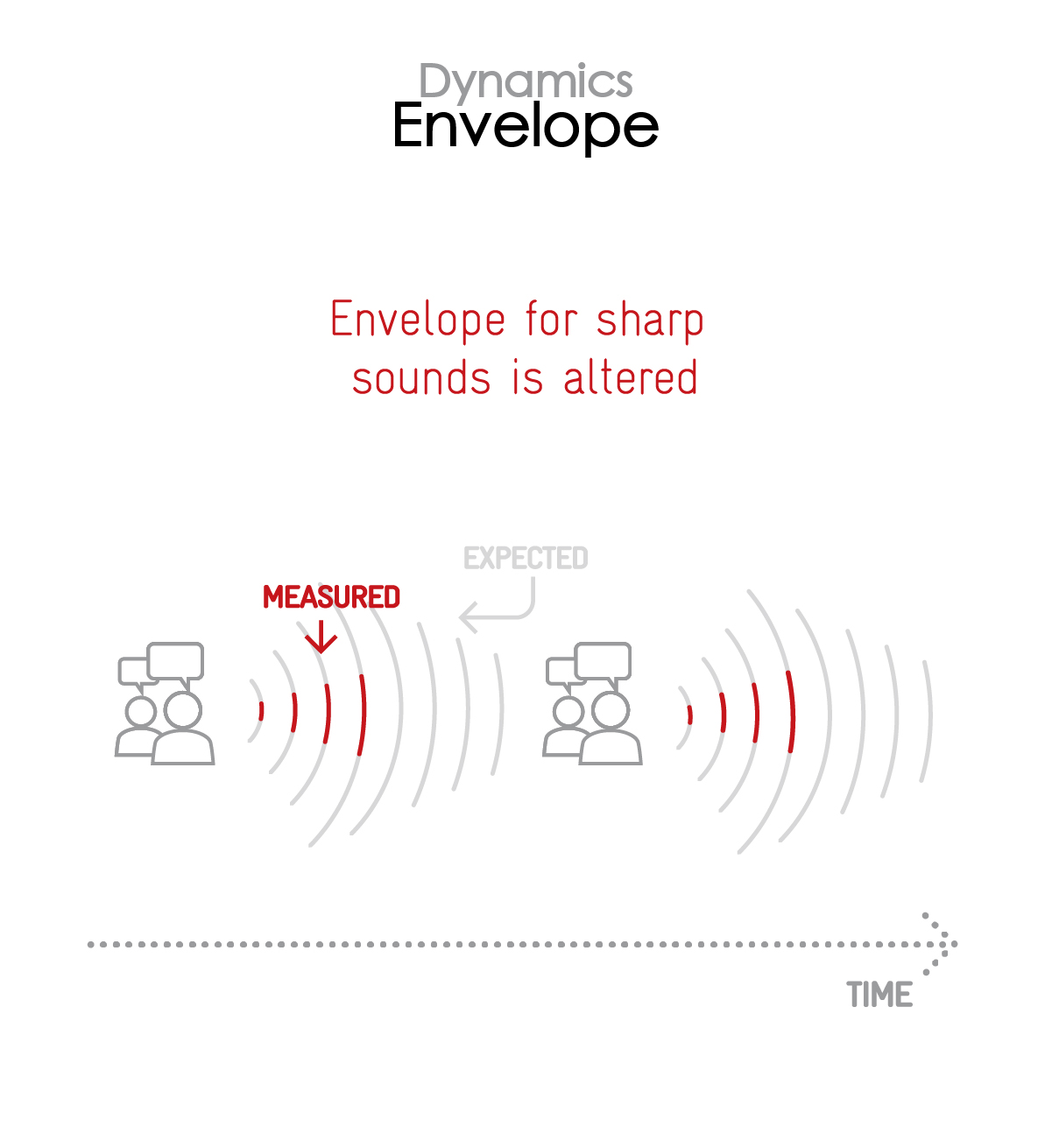
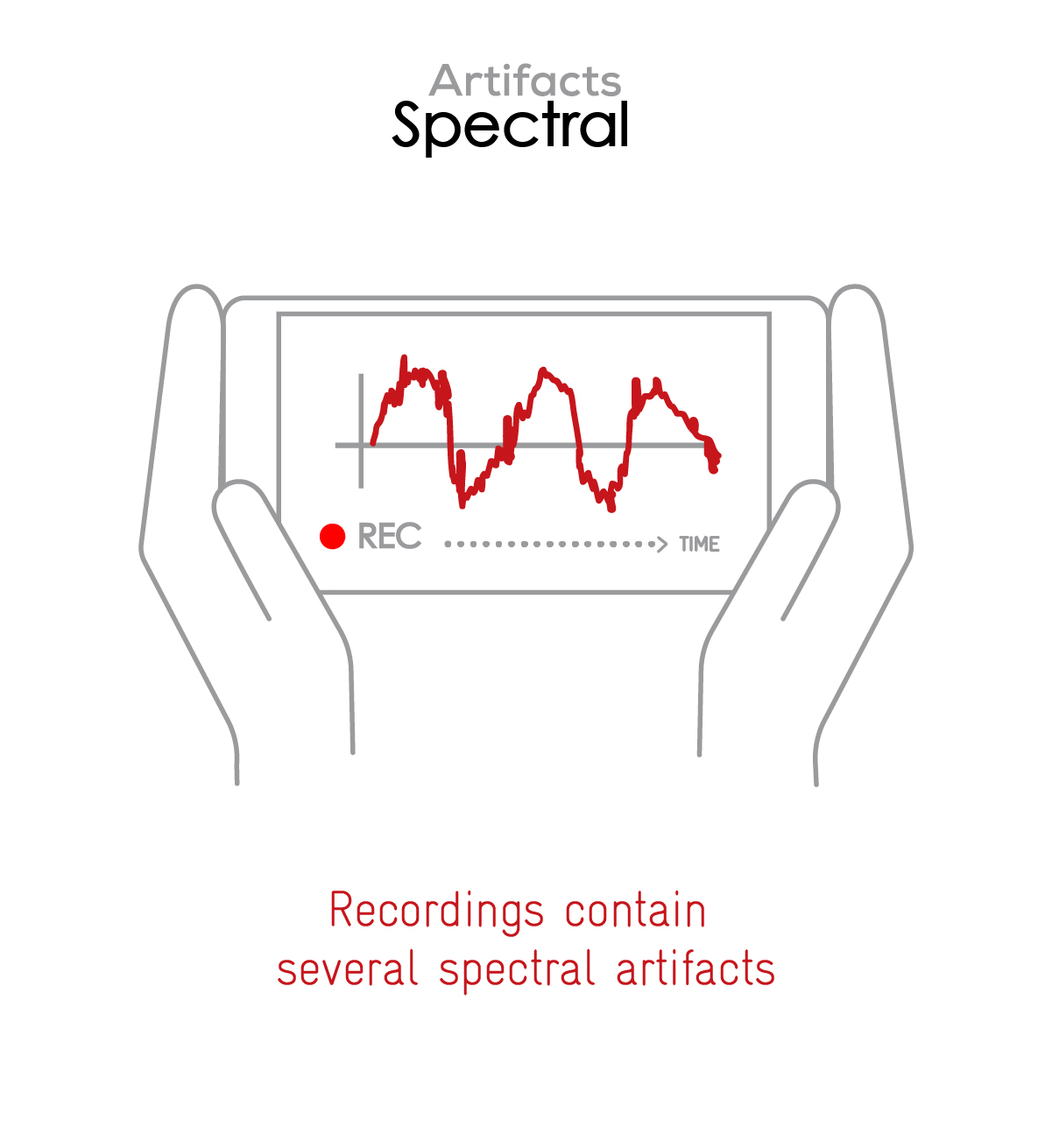
The sound noise reduction was was not very effective in any use cases except memo, where the noise canceling feature improved performance.

Spatial
Lenovo Legion Phone Pro
50
78
While the overall score for spatial was low for the Lenovo Legion Phone Pro, there were some positives. In the memo app, recordings are in stereo, delivering a better overall spatial performance. That memo app records precise treble, allowing for better distance and localizability performance. But in life video and selfie video, mono recording got in the way of effective expression of spatial qualities.
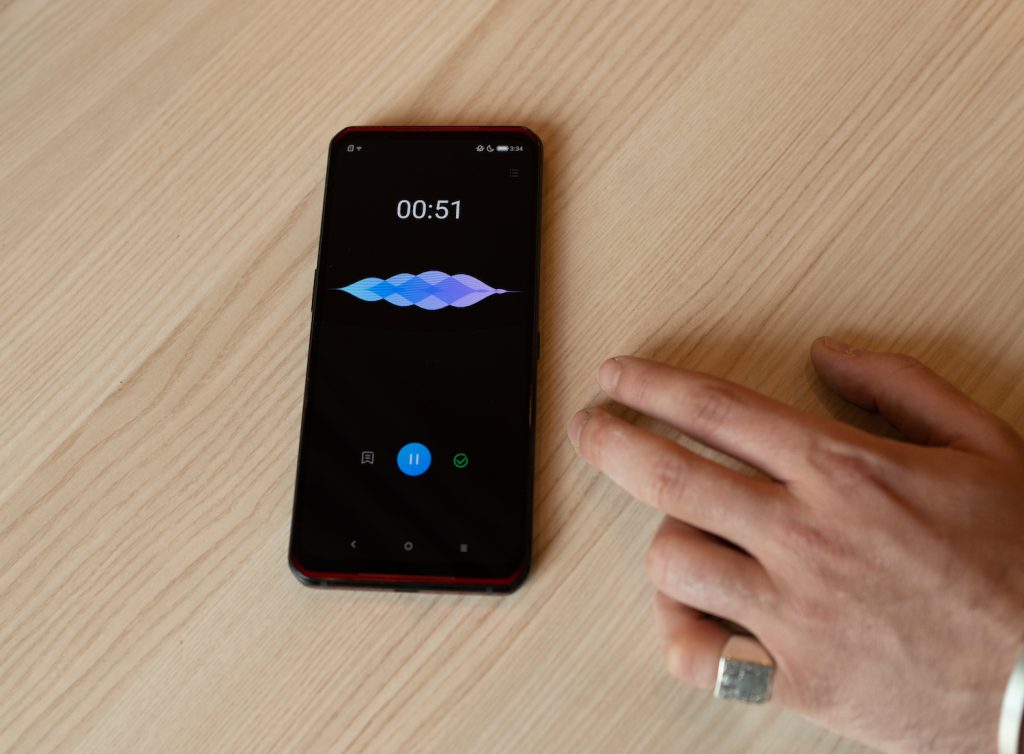

Volume
Lenovo Legion Phone Pro
46
99
The Lenovo Legion Phone Pro struggled with the volume attribute, getting a score that placed it much closer to the Nubia Red Magic 3S at the bottom with a 40 than the Huawei Mate 30 Pro at the top with an 88. There were two aspects to the score in this attribute. In the perceptual testing, our engineers noted that the loudness of recordings was good overall. But that was outweighed by far by a 0 score in the objective testing to see at what level of loudness the Lenovo Legion Phone Pro could record without picking up a lot of artifacts. Even at 90 decibels, the recordings were loaded with distortion and pumping.
Here are our test results, measured in LUFS (Loudness Unit Full Scale). As a reference, we expect loudness levels to be above -24 LUFS for recorded content:
| Meeting | Life Video | Selfie Video | Memo |
| -29.5 LUFS | -17.6 LUFS | -16.1 LUFS | -22.1 LUFS |

Artifacts
Lenovo Legion Phone Pro
44
97
Artifacts were problematic for the Lenovo Legion Phone Pro. A far-from-perfect noise canceling algorithm produced pumping, gating, and background noise level variations. At high SPL, distortions affect the recording to the point that the original content is severely degraded and hard to hear. You can hear some of those artifacts for yourself in this sample recording:

Background
Lenovo Legion Phone Pro
17
60
The Lenovo Legion Phone Pro struggled with background, landing near the bottom among the devices we’ve tested. Resonances in the high-mids increase the background, which is already too present. Pumping and volume variation impair the whole timbre of the background. In the memo app, the noise reduction algorithm takes several seconds to respond when activated, creating an unpleasant volume fluctuation.
Conclusion
Considering the high-quality components and big ambitions expressed in the marketing campaign for the Lenovo Legion Phone Pro, its results in our audio testing are disappointing. The device turned in an average performance in playback, with one high point coming in dynamics, especially in the games use case, where the precise, well-respected attack and powerful punch accurately reflect the energy of the content. The positioning of the speakers behind the screen is appropriate for a gamer phone, as they are difficult to occlude while playing. Volume performance is solid. On the negative side, tonal balance is affected by a lack of clarity, and muffled treble and inconsistent midrange hinder the spatial performance, especially for localizability and distance.
As a recording device, the Lenovo Legion Phone Pro is not terribly adept, but again, this may be a function of priorities. The device worked fairly well in the memo and meeting use cases, with few artifacts and stereo recording. But the timbre performance was poor in most use cases, and especially in the electronic concert use case, where the recorded audio was simply bad. The poor artifacts performance contributed to the poor dynamics and spatial performances in life video and selfie video, and the recordings in those cases were mono. Had the device been better designed for recording, its overall score would have been better.
Playback
Pros
- Above-average dynamics performance, especially in games use case
- Well-positioned speakers
- Good volume performance
Cons
- Lack of clarity impedes tonal balance.
- Muffled treble and inconsistent midrange muddle localizability and distance.
- Bass distortion at nominal volume
Recording
Pros
- Adequate in meeting and memo use cases
- Good occlusion performance
Cons
- Artifacts are an issue, especially in high SPL scenarios.
- Mono recording in life video and selfie video
- Poor timbre performance, with imprecise trebles and lack of bass



DXOMARK encourages its readers to share comments on the articles. To read or post comments, Disqus cookies are required. Change your Cookies Preferences and read more about our Comment Policy.